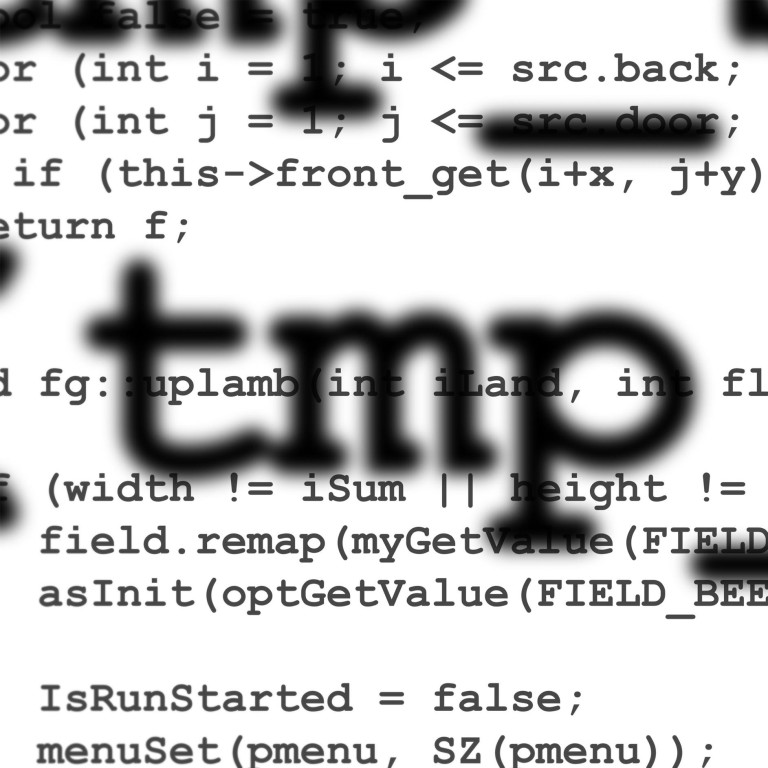
Open software development platform GitLab looks at suspending new hires in China, Russia on geopolitics
- A controversial post by GitLab executive has drawn heated debate ever since some of China’s tech news channels picked it up this week
San Francisco-based GitLab, an open platform for developing and collaborating on coding, is looking at suspending new hiring for sensitive positions in China and Russia because of customer feedback in the “current geopolitical climate”.
In a post published on GitLab’s website, one of the company’s executives said the venture wanted to enable a “job family country block” for team members who have access to customer data and singled out two countries involved in the decision – China and Russia. The post also says current team members should be prevented from moving to these two countries.
The decision, according to Eric Johnson, vice-president of engineering at GitLab, came after the “expressed concern of several enterprise customers”, and was also to align with what is becoming “a common practice” in the industry in the current geopolitical climate. He noted that it affected “zero current employees”.
“We do not make offers to individuals residing in these countries. Current team members are prevented from moving to these countries and remaining in a role that prohibits it,” Johnson wrote two weeks ago in the “issues” section on the company’s site, soliciting internal discussions among various departments.
In a statement on Tuesday, GitLab clarified its position.
“We currently do not have team members for the roles ‘Support Engineers’ and ‘Site Reliability Engineers’ in countries that are identified on the US Department of Homeland Security Cyber Security list of threats, namely China, Russia, and North Korea,” said GitLab. “GitLab is considering not opening ‘Support Engineers’ and ‘Site Reliability Engineers’ positions in these restricted countries. This has not been implemented at this time, as we are discussing it as a company.”
GitLab, which began as an open source project in 2011, said in September it had raised US$268 million in its round E funding, led by Goldman Sachs and Iconiq Capital, taking the valuation of the platform to $2.75 billion. The company counts US carrier Verizon and Wall Street bank Goldman Sachs among its customers.
GitLab obtained round C funding from Alphabet's GV (formerly Google Ventures), Iconiq Capital and Khosla Ventures in 2017.
The controversial post has drawn heated discussion both within GitLab and across the Pacific ever since some of China’s tech news channels picked it up on Monday. By singling out China and Russia, the decision adds to fears that a digital iron curtain is becoming real, with China and the US going their separate ways when it comes to technology and innovation.
An increasing number of Chinese tech companies from telecoms giant Huawei Technologies to artificial intelligence start-up SenseTime have been caught in the cross fire of tech tensions. A batch of Chinese facial recognition and AI companies were recently added to the US Entity List over human rights issues, restricting them from buying US-made technology.
The impact of the tech war is being closely-watched by the global open source community as developers around the world depend on platforms such as GitLab and its larger rival GitHub for open source codes and to contribute codes for future users. According to GitLab, hundreds of thousands of organisations use and contribute to its platform.
The GitLab post shows that even open source platforms may not be that open after all. In a reply to a question regarding the legitimacy of the decision, Johnson says there is “unacceptably high risk” that these nations may apply pressure to individuals living within their borders with sensitive data access.
iFlyTek says it won’t be ‘strangled’ by US blacklist as profits set to surge
Johnson also said GitLab would continue to accept open source contributions from China and Russia. “Those contributions [like all] will be vetted by employees with the appropriate permissions,” wrote Johnson.
Some users disagreed with the post though.
“That is kinda ironic. Also that is how things get political. Engineers should seek a technical solution, not a political one,” said a user named “pplcf” on GitLab’s site, responding to the post.
GitHub did not immediately respond to an e-mail asking whether they would follow the example of GitLab regarding hiring policies.
GitHub, owned by Microsoft, said in May that its open source platform was not subject to the new US export control restrictions related to local companies in China.
For more insights into China tech, sign up for our tech newsletters, subscribe to our Inside China Tech podcast, and download the comprehensive 2019 China Internet Report. Also roam China Tech City, an award-winning interactive digital map at our sister site Abacus.

